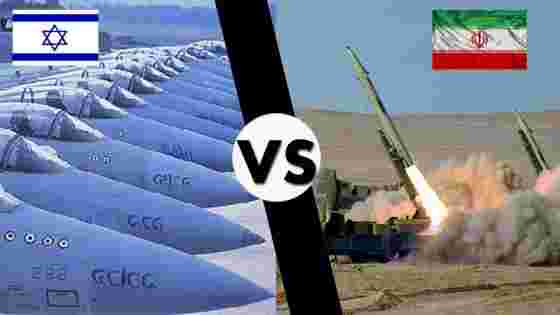SOMETHING TO KNOW ABOUT NUCLEAR WEAPONS
The Treaty on the Non-Proliferation of Nuclear Weapons (NPT) is the primary international agreement governing nuclear weapons ownership. Under this treaty, five countries are recognized as nuclear-weapon states (NWS):
- Recognized Nuclear-Weapon States:
- United States: Developed nuclear weapons in 1945
- Russia: Developed nuclear weapons in 1949 (as the Soviet Union)
- United Kingdom: Developed nuclear weapons in 1952
- France: Developed nuclear weapons in 1960
- China: Developed nuclear weapons in 1964
Other countries that possess nuclear weapons but are not recognized as NWS under the NPT include ¹ ²:
- Non-Recognized Nuclear-Weapon States:
- India: Developed nuclear weapons in 1974 and 1998
- Pakistan: Developed nuclear weapons, with estimated 170 warheads
- North Korea: Developed nuclear weapons, with estimated 50 warheads
- Israel: Believed to possess nuclear weapons, with estimated 90 warheads
The NPT aims to prevent the spread of nuclear weapons and promote disarmament. Key provisions include ²:
- Non-Proliferation: Non-nuclear-weapon states agree not to develop or acquire nuclear weapons.
- Disarmament: Nuclear-weapon states commit to disarmament and reducing their nuclear arsenals.
- Peaceful Use: Countries have the right to use nuclear technology for peaceful purposes.
However, some countries have criticized the NPT for being discriminatory and ineffective in preventing nuclear proliferation. The Treaty on the Prohibition of Nuclear Weapons (TPNW) was adopted in 2017 to prohibit the development, testing, production, and use of nuclear weapons ³.
The Treaty on the Non-Proliferation of Nuclear Weapons (NPT) is the primary international agreement governing nuclear weapons ownership. Under this treaty, five countries are recognized as nuclear-weapon states (NWS):
- Recognized Nuclear-Weapon States:
- United States: Developed nuclear weapons in 1945
- Russia: Developed nuclear weapons in 1949 (as the Soviet Union)
- United Kingdom: Developed nuclear weapons in 1952
- France: Developed nuclear weapons in 1960
- China: Developed nuclear weapons in 1964
Other countries that possess nuclear weapons but are not recognized as NWS under the NPT include ¹ ²:
- Non-Recognized Nuclear-Weapon States:
- India: Developed nuclear weapons in 1974 and 1998
- Pakistan: Developed nuclear weapons, with estimated 170 warheads
- North Korea: Developed nuclear weapons, with estimated 50 warheads
- Israel: Believed to possess nuclear weapons, with estimated 90 warheads
The NPT aims to prevent the spread of nuclear weapons and promote disarmament. Key provisions include ²:
- Non-Proliferation: Non-nuclear-weapon states agree not to develop or acquire nuclear weapons.
- Disarmament: Nuclear-weapon states commit to disarmament and reducing their nuclear arsenals.
- Peaceful Use: Countries have the right to use nuclear technology for peaceful purposes.
However, some countries have criticized the NPT for being discriminatory and ineffective in preventing nuclear proliferation. The Treaty on the Prohibition of Nuclear Weapons (TPNW) was adopted in 2017 to prohibit the development, testing, production, and use of nuclear weapons ³.
SOMETHING TO KNOW ABOUT NUCLEAR WEAPONS
The Treaty on the Non-Proliferation of Nuclear Weapons (NPT) is the primary international agreement governing nuclear weapons ownership. Under this treaty, five countries are recognized as nuclear-weapon states (NWS):
- Recognized Nuclear-Weapon States:
- United States: Developed nuclear weapons in 1945
- Russia: Developed nuclear weapons in 1949 (as the Soviet Union)
- United Kingdom: Developed nuclear weapons in 1952
- France: Developed nuclear weapons in 1960
- China: Developed nuclear weapons in 1964
Other countries that possess nuclear weapons but are not recognized as NWS under the NPT include ¹ ²:
- Non-Recognized Nuclear-Weapon States:
- India: Developed nuclear weapons in 1974 and 1998
- Pakistan: Developed nuclear weapons, with estimated 170 warheads
- North Korea: Developed nuclear weapons, with estimated 50 warheads
- Israel: Believed to possess nuclear weapons, with estimated 90 warheads
The NPT aims to prevent the spread of nuclear weapons and promote disarmament. Key provisions include ²:
- Non-Proliferation: Non-nuclear-weapon states agree not to develop or acquire nuclear weapons.
- Disarmament: Nuclear-weapon states commit to disarmament and reducing their nuclear arsenals.
- Peaceful Use: Countries have the right to use nuclear technology for peaceful purposes.
However, some countries have criticized the NPT for being discriminatory and ineffective in preventing nuclear proliferation. The Treaty on the Prohibition of Nuclear Weapons (TPNW) was adopted in 2017 to prohibit the development, testing, production, and use of nuclear weapons ³.
0 Comments
0 Shares
95 Views



